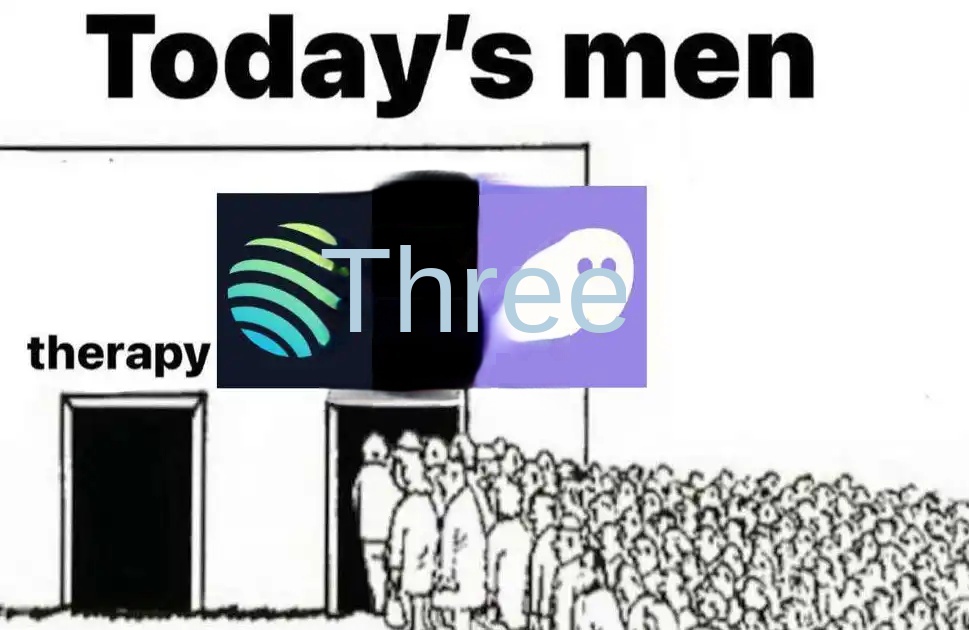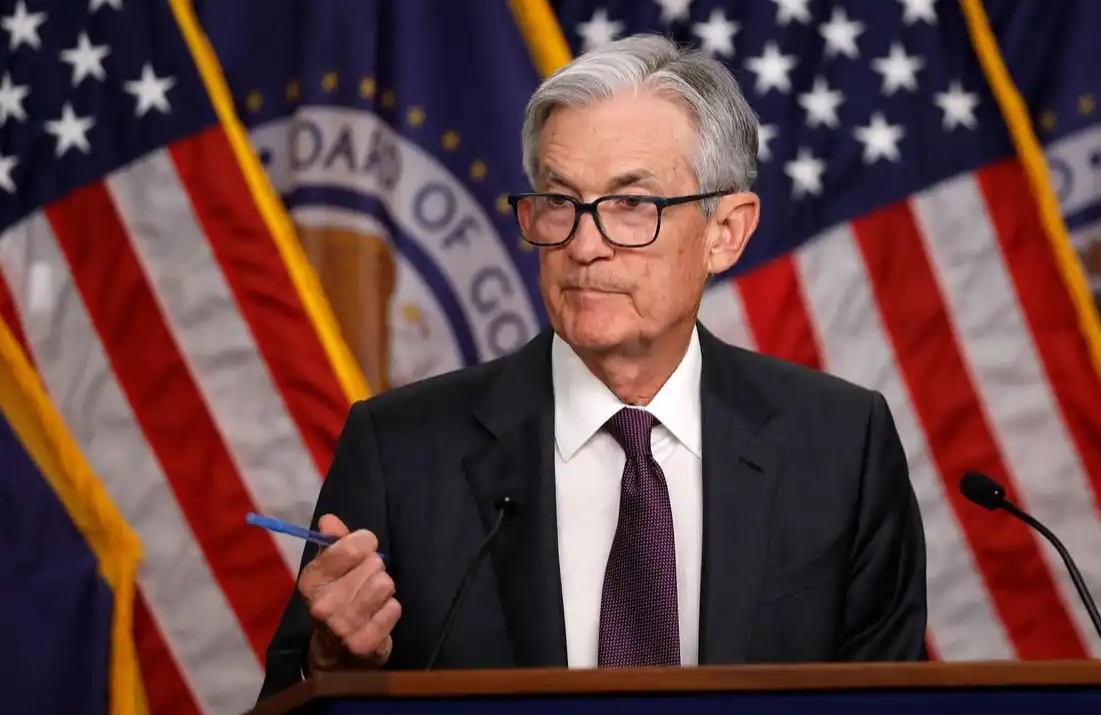The rise and fall of three Arrows capital
原文标题:《 三箭资本的兴衰史 》
原文作者:Justina Lee,Muyao Shen & Ben Bartenstein,彭博社
South Wind, Unitimes
Preface: Su Zhu and Kyle Davies turned 3AC Capital into the premier hedge fund in Crypto, but they bet everything that prices could only go up.
Just days before Bitcoin fell below $40,000, and two months before his hedge fund Three Arrows Capital went bust, Mr. Su Zhu sat down for an interview in the Bahamas with a shoeless foot tucked under his leg. As a legendary investor in the more than decade-old cryptocurrency industry, his message is matched by his relaxed demeanor. "When there's a lot of desperation, you can start buying," he deadpans in a podcast recorded for FTX trading platform. "You don't have to follow despair."

Pictured: Su Zhu, Juliana Tan, Bloomberg Businessweek
That steely optimism is easy to find in a group that has turned the misspelled word "HODL" into a full-fledged slogan that is never for sale. But Su Zhu is more than just a discerning cryptocurrency trader. Su Zhu runs one of the world's largest cryptocurrency hedge funds, Three Arrows Capital (3AC), along with his alum Kyle Davies. At one point, the firm managed billions of dollars -- far from huge by Wall Street standards, but a heavyweight in digital assets.
Not only that, Su Zhu and Kyle Davies are integral parts of the intricate web of the cryptocurrency market. Their funds are venture investors in and, in some cases, manage the coffers of well-known crypto startups. The fund is both a borrower (ie, a borrower from those lenders) and a shareholder in some of the big lenders. It is also the parent company of other emerging funds. The two are influential figures, with a combined 610,000 Followers on Twitter, as well as brokers for deals and introductions.

Photo above: Kyle Davies. Photo: Opalesque TV/YouTube
Su Zhu first came to prominence at the end of 2018 when he correctly called the end of the last "crypto winter", when bitcoin prices fell by about 80%. So when Bitcoin fell from a peak of more than $68,000 this year and rising bank rates caused investors to flee risky assets, he remained optimistic. With borrowed money, 3AC is betting that cryptocurrencies will rebound. However, the market continued to fall and dominoes fell one after another until the fund became the biggest domino. In mid-June, the company began missing margin calls from companies funding its trades and declared bankruptcy on July 1, when bitcoin traded below $20,000.

In a July 8 filing in the US bankruptcy case, advisers in charge of liquidating the fund said Su Zhu and Kyle Davies had not yet worked with them and the founders' whereabouts were unknown. In response to the allegations, Su Zhu tweeted on July 12 that their "good faith" efforts to work with the liquidators had been "induced". Messrs. Su Zhu, Kyle Davies and their lawyers did not respond to requests for comment.

Above: On July 12, Su Zhu posted a tweet accusing the liquidators of "induced" behavior
The rise and fall of 3AC, a Singapore-based fund, has coincided with Crypto. What started as speculation in a few well-known cryptocurrencies, such as Bitcoin and Ether, became an interdependent industry, with tokens linked to each other, crypto businesses offering savers double-digit yields like banks, and traders boosting returns by borrowing large amounts of assets. The rapid growth of this infrastructure is driving up the price of cryptocurrencies and the wealth of 3AC; When prices fell this year, 3AC went bust and may even have accelerated Crypto's decline. As complex as this new Crypto ecosystem is -- lots of "smart contracts," lots of online white papers, and exciting decentralized finance (DeFi) -- it's still proving to be a huge bet on the simple idea that digital currencies will always have more buyers and prices will basically keep going up.
Crypto exchanges, including BlockFi and Blockchain.com, have since disclosed their exposure to 3AC. Voyager Ditital Ltd., a Canadian-listed company, went bankrupt after 3AC defaulted on a loan of more than $650 million. Voyager's customers include many ordinary investors whose Crypto accounts have been frozen and are unlikely to get all their assets back. When the music stopped, it was discovered that almost everyone had lent money to 3AC.
Cryptocurrencies are known for their transparency: transactions are recorded in public blockchain databases, and many are governed by open-source software rules. But for the vast sums of money 3AC manages, borrowing money is largely a matter of relationship, not so different from the way a typical hedge fund relies on the confidence of its bankers. 3AC borrows from some of the biggest cryptocurrency lenders, but doesn't disclose much about its finances. Su Zhu and Kyle Davies, whose online persona is that of populist billionaires (those who care about the interests of ordinary people), tweeted: "BTW, only baby boomers play stocks." But for the proponents of this view, no one expected them to make such wild bets. They turned out to be "degens," Crypto slang for degenerate gamblers, like many others, according to a trading firm executive who asked not to be named.
Both 3AC founders had a background in traditional finance before entering Crypto. After attending Phillips Academy, an elite boarding school in Massachusetts, and later Columbia, Su Zhu and Kyle Davies trade derivatives at Credit Suisse Group AG in Tokyo. In 2012, when they were in their mid-20s, they set up their own hedge fund; The hedge fund, which is small, made money by taking advantage of price differences between derivatives on emerging market currencies, while hoping those small gains would add up over many trades.
As digital assets began to take off in 2016, Su Zhu and Kyle Davies found that emerging cryptocurrency markets were riddled with more of the kind of price differentials they profited from currency contracts. At one point in the heady year of 2021, bitcoin futures were trading at a 50 per cent premium to the "spot" price of buying bitcoin. As a result, 3AC sells futures and buys spot, which is typical of Wall Street taking advantage of a temporary disjuncture in prices.
Then came an even bigger opportunity. The Grayscale Bitcoin Trust, or GBTC, allows people who can't or don't want to own Bitcoin directly to buy shares in the fund that invests in Bitcoin. For a while, GBTC was one of the few Crypto products regulated in the United States, so it had its own market. At the time, GBTC was so popular that its shares were trading at a persistent premium to the value of its Bitcoin holdings.
However, there are ways for large investors, such as hedge funds, to buy GBTC shares at a discount to ordinary traders. Grayscale allows these large investors to hand over bitcoin directly to the trust to buy GBTC shares. An easy way to make money is to borrow Bitcoins, convert them into GBTC shares, and then sell those shares at a premium. In its last filing at the end of 2020, 3AC was the largest holder of GBTC, with a position worth $1 billion at the time. But there's a snag: GBTC shares bought directly from Grayscale are locked up for six months each time.

Above: Grayscale Bitcoin Trust (GBTC) premium or discount since July 2020. Photo source: Bloomberg
Starting in early 2021, this lock-in limit becomes an issue. GBTC's price has fallen from a premium to a discount -- worth less per share than the bitcoin price that underpins it -- as it faces tougher competition from similar products. As the months passed, the discount got bigger and bigger. In early June, TPS Capital, which often brokered 3AC borrowing, tried to persuade other speculators to snap up GBTC shares, according to two trading firm executives who spoke on the condition of anonymity. Timothy Chan, chief executive of TPS Capital, said 3AC had proposed the deal and asked to recommend it to clients. At the time, he said, his company was not aware of any financial difficulties at 3AC and, as far as he knew, the offer fell on deaf ears.
Greyscale trading is just one of 3AC's simple strategies. For a while, the Crypto world was full of strange new arbitrage opportunities that looked like ways for sophisticated investors to capture a windfall. This approach seems particularly true in the raucous corner of what is known as "decentralised finance" (DeFi). DeFi aspires to build a copy of Wall Street on blockchain -- a field that encompasses all the functions of deposit-taking, trading, lending and insurance, but with less regulation.
为了改变世界,DeFi 初创公司需要让人们将他们的加密 Token 委托给它们。在银行存款利率几乎为零、安全债券收益不到 2% 的时候,DeFi 平台以各种方式为储户创造了两位数的收益率。与许多其他公司一样,3AC 即借款,又存款。
随着加密货币价格的暴跌,DeFi 的衰落是残酷的。2022 年初最火的 DeFi 协议是 Anchor,它提供 20% 的收益率。但要赚到这些钱,你必须持有 TerraUSD (UST),这是一个名叫 Do Kwon 的自大加密网红凭空创造的 Token ,UST 与他创造的另一种名为 Luna 的 Token 相关联。这整个系统依赖于 Luna 具有价值,在最好的时候,该系统假设未来所有人都使用 Do Kwon 开发的技术来交易 Token 和数字艺术。
That future can't come soon enough for 3AC and its legions of Luna followers. Kyle Davies previously told the Wall Street Journal that 3AC is not only generating revenue from Anchor, but also invested $200 million in Luna in February. At their peak, Luna and UST had a combined market capitalization of $60 billion. But when Luna's price plummeted, all that evaporated.
在那之后,恐慌情绪在加密货币领域蔓延开来。3AC 还在一个名为 Lido Finance 的流动性质押平台上投资 ETH,试图通过一种名为「质押」(Staking) 的方式产生收益。简而言之,需要质押 ETH 才能参与验证区块链交易。如果你同意长期锁定你的 ETH Token 来支持这项活动,你可以在未来赚取更多 ETH 作为奖励。Lido Finance 的创新之处在于,当储户的 ETH 被锁定时,他们会得到另一个可交易的 Token ,称为 stETH。在今年的大部分时间里,stETH 的交易价格一直与 ETH 持平,但在 Luna 崩盘后,由于交易员争相退出 stETH,stETH 价格下跌了 7%。

Above: stETH prices in ETH terms since 2022, source: Bloomberg
3AC is one of them. On June 14, the company withdrew its 80,000 stETH (over $84m) deposits from DeFi lending agreement Aave in just four transactions and began converting them back to ETH at a lower price, according to data provider Nansen. This is a classic financial crisis dynamic: once prices fall enough, people are desperate to flee, even at a loss, driving prices down further.
David Fauchier, cryptocurrency fund manager at Nickel Digital, said: "What we've seen over this period of time is that all this activity has come to a boil. That's what happened in 2008. It was a very typical liquidity squeeze, but no active central bank stepped in to do anything."
These transactions can be tracked on public blockchains and could be made by anyone who knows anything about cryptocurrencies. But Su Zhu and Kyle Davies have access to (borrowed) funds not available to the average cryptocurrency trader: They borrowed from large digital asset lenders and wealthy HODLers (stalkers of cryptocurrencies) and struck brokerage deals with JPMorgan Chase and Bank of America; They also received some DeFi funding and were accused by a trading firm (8 Block Capital) of misappropriating $1 million of the firm's 3AC holdings to make margin calls.
In at least one case, 3AC May have refused to share details with the lenders it lent to. In a disclosure from Hodlnaut, a company that offers cryptocurrency savings accounts, Kyle Davies spoke to broker TPS Capital& NBSP in May. Seeking to lodge a claim against him without Posting collateral. Borrow cryptocurrency. After Hodlnaut laid out its demands, TPS Capital said 3AC did not disclose an audited balance sheet, but instead provided a statement of net asset value. That is, 3AC's net worth is self-declared and does not include a breakdown of its investments. Hodlnaut said it did not accept the deal.
Ryan Watkins, co-founder of cryptocurrency hedge fund Pangea Fund Management, said: "What surprised me most about 3AC's collapse was how they had accumulated so much leverage in the first place. It was the lack of transparency that allowed 3AC to borrow so much money and cause panic across the industry because no one knew who was exposed to them and how bad they were."
In retrospect, 3AC was always a mystery. The fund itself is based in the British Virgin Islands and is licensed in Singapore to manage other people's money. But Mr Zhu and Kyle Davies have always insisted that the wager -- $3bn in total, according to Mr Davies to the Wall Street Journal -- is entirely theirs.
To complicate matters further, 3AC has also launched two venture funds: DeFiance Capital, which invests in DeFi, and Starry Night Capital, which deals in digital art. DeFiance has outside investors and its founders insist on operating independently, but that structure makes its future uncertain. 3AC is now considering its legal options in light of its bankruptcy, according to a person familiar with the matter who spoke on condition of anonymity. 3AC's relationship with TPS Capital, a brokerage, has also come under scrutiny. TPS Capital is known in the industry as 3AC's "over-the-counter" desk, and although it is an independent company, Su Zhu and Kyle Davies own stakes in it. Last week, TPS Capital issued a statement saying that while the two companies provided business to each other and coordinated loans to 3AC, their businesses were different.

Above: 3AC's office in Singapore. Photo: Suvashree Ghosh/Bloomberg
On June 30, the Monetary Authority of Singapore reprimanded 3AC for providing false information and exceeding limits on assets under management, but did not impose fines or other penalties. Before the disaster, 3AC was looking to move to Dubai, where the crypto industry has been very welcoming. Just two months ago, Mr Zhu and Kyle Davies met some of the world's biggest venture capital firms and sovereign wealth funds at a Sequoia Capital conference in ABU Dhabi, according to people familiar with the matter. Some say the 3AC founders opened an office in an office building in Dubai, though the sign has since been removed and a spokesman for the building said they now have no office there.
As 3AC began to unravel, Su Zhu and Kyle Davies met with executives from several Crypto trading platforms to discuss a possible rescue -- to no avail, people familiar with the matter said. Like the global economy, the Crypto market is experiencing a classic downturn in the credit cycle. Unlike lending to start a business or buy a house in the real world, demand for cryptocurrency leverage comes almost entirely from speculators. Evgeny Gaevoy, founder of Wintermute, one of the largest cryptocurrency market makers, said: "We all realize that Crypto is much more connected to the outside world than it used to be. A lot of centralized entities like 3AC further fuel the boom of this cycle by making all the numbers much higher than they otherwise would have been."
Kyle Davies was responsible for most of 3AC's external calls, while Su Zhu was a man with ideas, former 3AC employees say. Mr Zhu's main argument is the "supercycle", the continued rise in prices driven by the technological revolution to build a decentralised Internet on a blockchain. Su Zhu likes to use history from feudal China to the Dark Ages to chart a long road to Crypto dominance. Even at private dinners and group chats, acquaintances say, the two men defended their optimistic beliefs. In May, Kyle Davies was talking about buying Bitcoin and ETH on margin, according to a person who met with him at the time but was not authorized to speak to the media.
Haseeb Qureshi, managing partner of Venture fund Dragonfly Capital, said: "I'm just surprised at how sincere they are about it, despite their former experience as currency traders." After all, currency traders should be used to prices moving in both directions. He continued: "They can be stupid and misguided, especially in a market that is reeling under macro pressures like this. But they really believe in these things, and you can read about them in their books, right? If you don't, you don't trade like this."
In the Crypto world's vision of a perfect future, one without a centralized trading platform, a crash like 3AC's should not happen. Sure, people may lose money, but everyone's asset holdings can be seen on the blockchain. Reputation is irrelevant. If the bet falls below the lender's collateral requirement, it will be ruthlessly liquidated, and no one will wait for margin calls. Some argue that because of these factors, Aave, one of the biggest DeFi lending agreements, has survived unscathed.
But that future seems far off. The Crypto crisis of 2022 turned out to be like any other financial crisis before it: rising asset prices led to excessive trust, followed by a sudden collapse of confidence. In May, Mr Zhu called his super-cycle theory a "regrettable mistake". In May, Su Zhu called his super-cycle theory "woefully wrong". On June 15, he tweeted that he and Kyle Davies were "in communication with relevant parties and are fully committed to resolving this issue". By then, Mr. Zhu had quietly removed tabs on agreements like Luna from his Twitter profile. His twitter background header remains: three upward arrows with the words "Up only".
** This article represents the views of the original author only and does not constitute any investment opinion or recommendation.
The original link
Welcome to join the official BlockBeats community:
Telegram Subscription Group: https://t.me/theblockbeats
Telegram Discussion Group: https://t.me/BlockBeats_App
Official Twitter Account: https://twitter.com/BlockBeatsAsia
 Forum
Forum

 Finance
Finance
 Specials
Specials
 On-chain Eco
On-chain Eco
 Entry
Entry
 Podcasts
Podcasts
 Activities
Activities
 OPRR
OPRR








